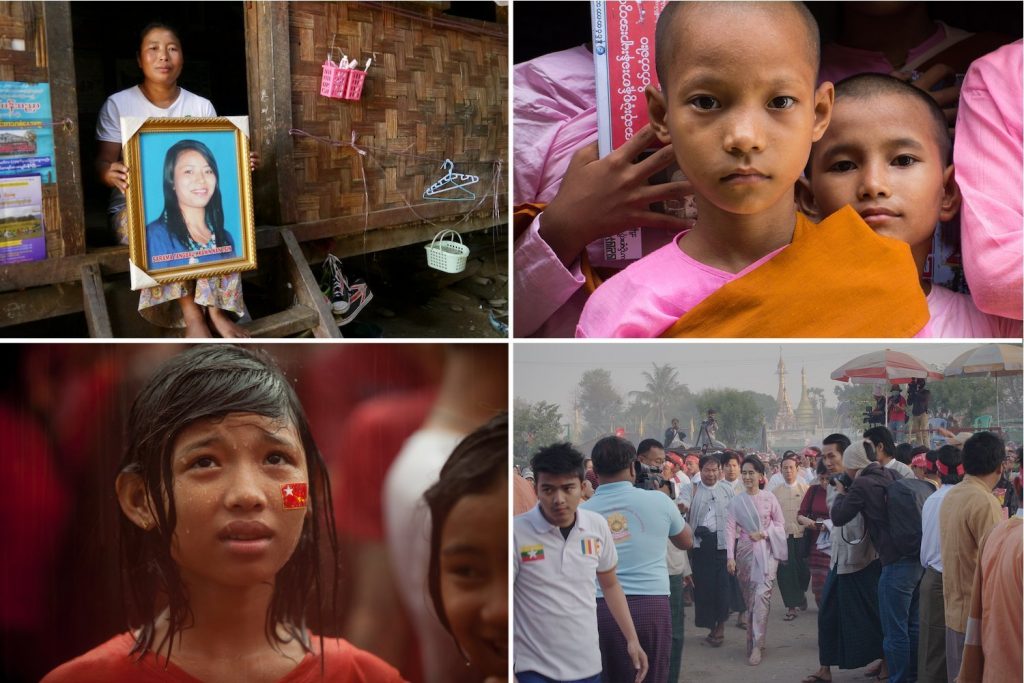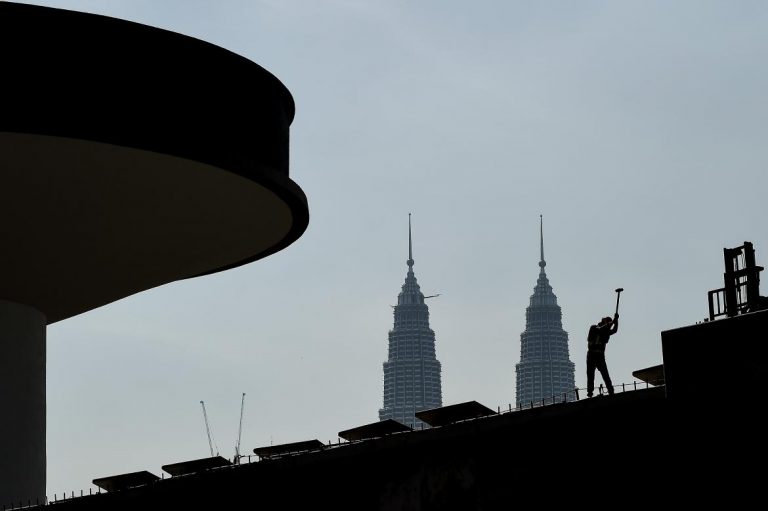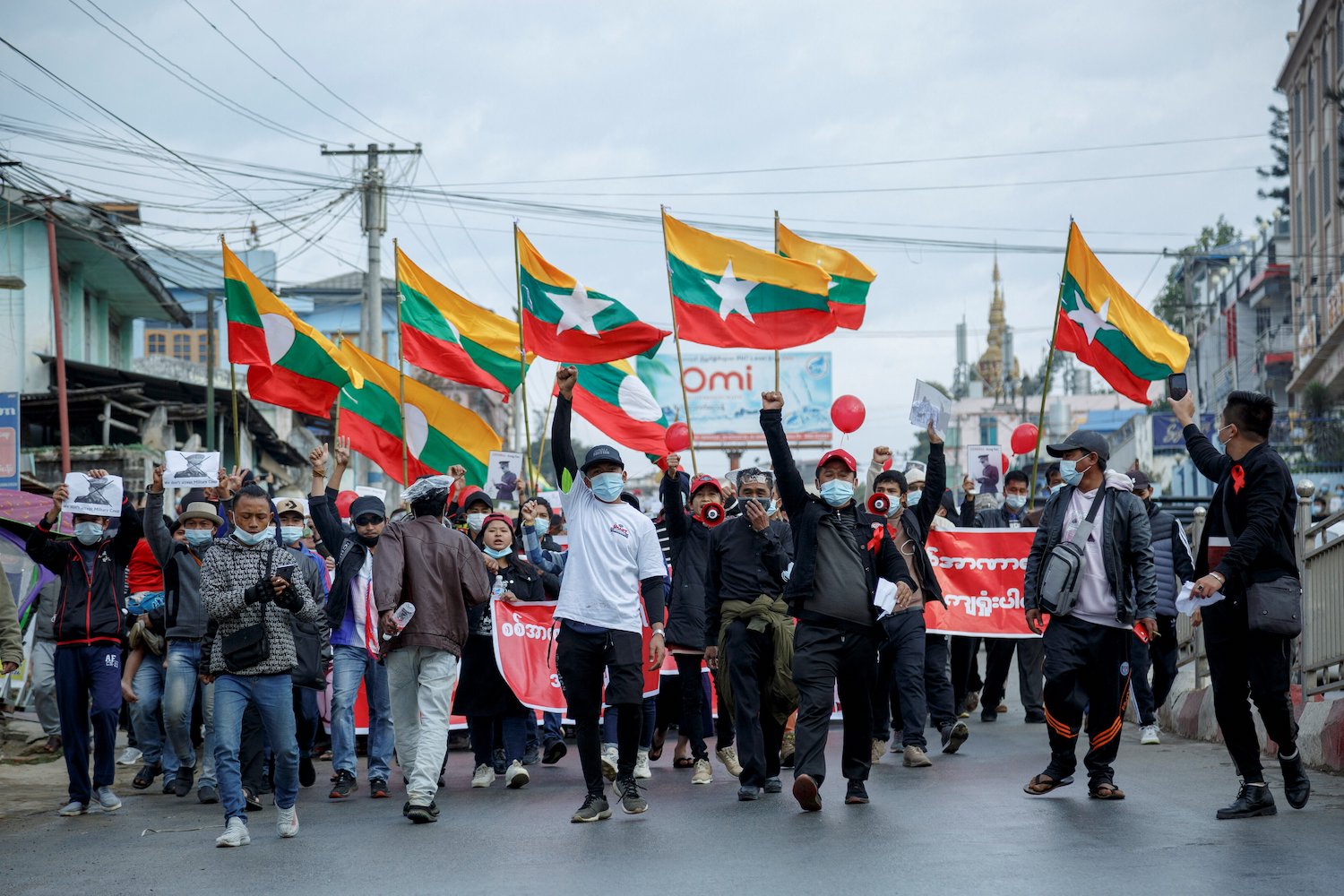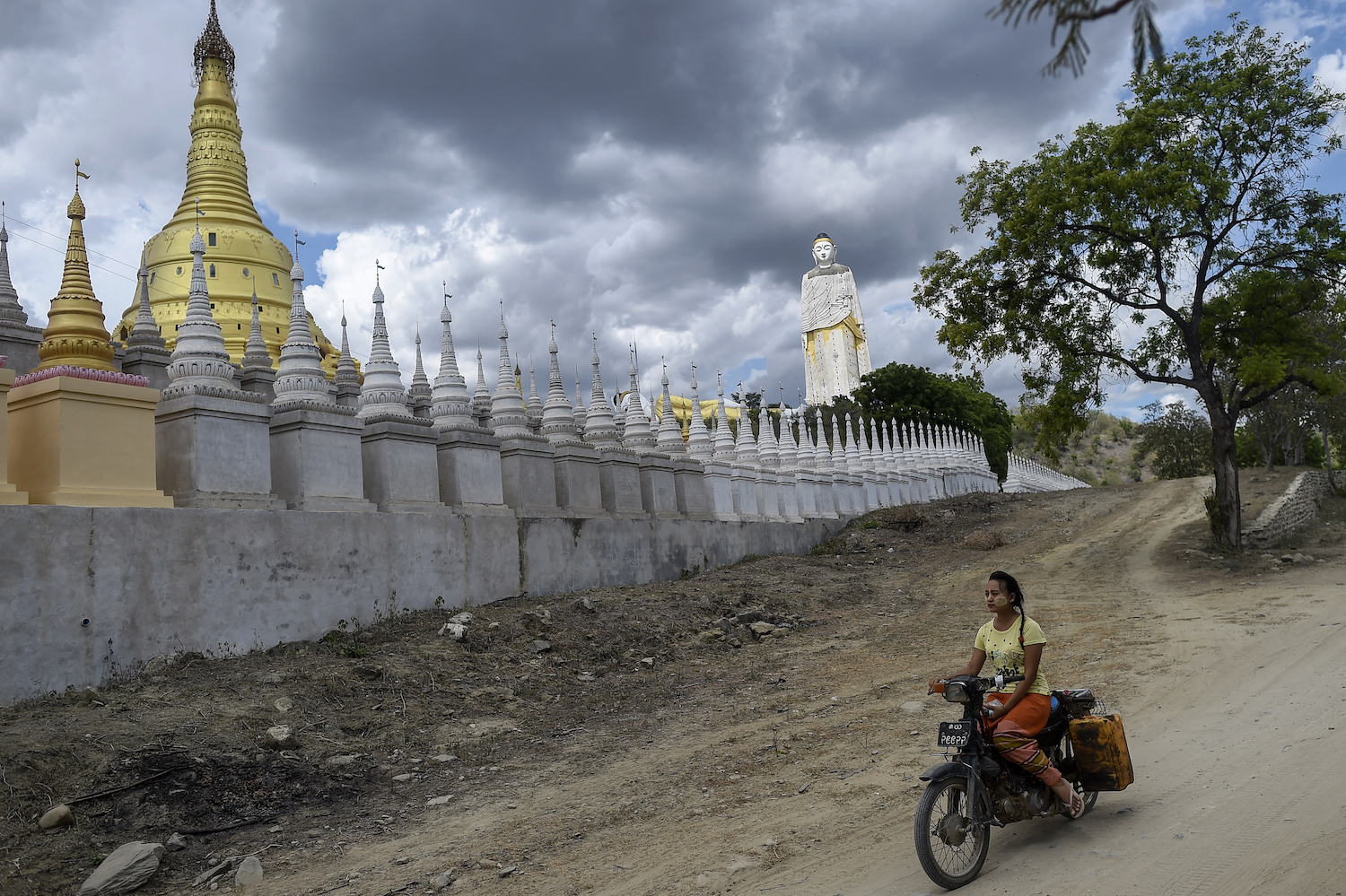Online film festival that runs to June 20 aims to draw attention to Myanmar’s political crisis while raising money for groups inside the country striving to restore democracy and alleviate hardship.
By SCOTT MURPHY | FRONTIER
Mr Kenneth Wong and his family left Myanmar soon after witnessing the military gun down unarmed protesters on the streets of Yangon in 1988. For Wong, a Burmese language lecturer at the University of California, Berkeley, there’s a painful sense of deja vu over the situation in Myanmar. He was a university student in 1988 when the military violently suppressed a national uprising in which many of his friends participated.
In the decades since, Wong was encouraged by how much Myanmar had changed each time he visited. Then came the coup on February 1. “The things I’m seeing are things I hoped the new generation would never have to experience,” he told Frontier.
Wong, who is also a poet and artist, began looking for a way to support the anti-coup struggle through art. He got together with a group of filmmakers and directors based in San Francisco and began sounding out Myanmar filmmakers and distributors with the idea of holding an online film festival, with all proceeds going towards humanitarian and pro-democracy groups inside the country. These discussions resulted in the Burma Spring Benefit Film Festival, which features more than 30 films from or about Myanmar, and runs until June 20.
Helping to spearhead the concept was Gaetano Kazuo Maida, the executive director of the Buddhist Film Foundation/International Buddhist Film Festival.
“The filmmaker community really responded to our urgent invitations,” said Maida.
“All of the filmmakers that we reached out to were very generous, knowing that this was the cause,” added Wong.
The film festival has an added poignancy because of the regime’s targeting of Myanmar’s top artists, including actors, filmmakers and bloggers. A fellow film festival organiser, Min Htin Ko Ko Gyi, who founded the annual Human Rights Human Dignity Film Festival, was arrested on the day of the coup. In total, the military has issued arrest warrants for 120 filmmakers, actors, celebrities and journalists for opposing the coup.
“The junta recognises that these entertainers have an incredibly powerful voice and so they target them,” Wong said.
One of the most recent filmmakers to be arrested was Ma Aeint, whose latest film, Money has Four Legs, directed by Maung Sun and released last year, was about censorship in Myanmar. Ma Eaint’s family haven’t been able to contact her since she was detained by police in early June. “We want to get in touch with her her as soon as possible because the interrogation centers are known for torture,” said her sister, Ma Su Wai.
Many of the titles in the Burma Spring Benefit festival encapsulate the sense of deja vu Wong is feeling, at a time when the military is once again in control of the levers of power and the people are once again fighting for democracy.
Burma VJ, a 2008 Best Documentary nominee at the Academy Awards in the United States, shows how thousands of monks led a campaign of nonviolent resistance against the military junta in protests in 2007 known as the Saffron Revolution. Dozens were killed and hundreds arrested, and the Danish team that made the documentary had to smuggle their footage out of the country.
Fellow festival organiser Ms Jeanne Marie Hallacy said the films in the festival were selected both for the strength of their storytelling and filmmaking craft, and their relevance for a general audience to understand the country’s prolonged struggle for democracy and human rights.
One of the newest films to be screened, Burma Spring 21, is unique in that the five-minute film was shot and edited by an anonymous Myanmar filmmaker soon after the coup. Although filmmakers would ordinarily covet acclaim for a completed project, fear of being on a government blacklist and facing potential reprisals means that the message takes precedence.
“Facts and figures are easy to get online,” Wong said. “But what’s difficult to get are the explanations about the socio-political issues that spawned the current crisis. This is the type of information that is better discovered in books, films, and particularly in documentary films.”
A highlight of the film festival will take place on June 11 when it is due to be addressed by two members of the National Unity Government: U Aung Myo Min, the minister for human rights, and Naw Susannah Hla Hla Soe, the minister for women, youth and children affairs.
The film festival is just one event in one US city that is helping to create awareness and raise funds for people resisting the coup in Myanmar. Elsewhere around the world, local activist groups have been holding rallies and raising funds for the protest movement.
Wong is working with the International Network of Engaged Buddhists to transfer much-needed funds to civil servants who have joined the Civil Disobedience Movement and are refusing to work under the junta. “These are lifelines to them, because if you are participating in the CDM, a salary is no longer available,” said Wong.
Although Myanmar faces an uncertain future, Wong hopes for the day when the Burma Spring Benefit Film Festival will no longer aim to raise awareness and funds, and will instead showcase a renewed entertainment scene in all its creative glory. During his trips to Myanmar, he saw clear signs that the country was moving towards a better future after nearly half a century of military rule.
“There were a lot of young people who were launching their own startups and drawing inspiration from Silicon Valley,” he said. “At tea shops, taxi drivers and waiters were eager to talk about politics and express their views without [having to worry about] being arrested. I felt that these were signs that democracy was struggling to be born. So this film festival is about creating awareness.”







